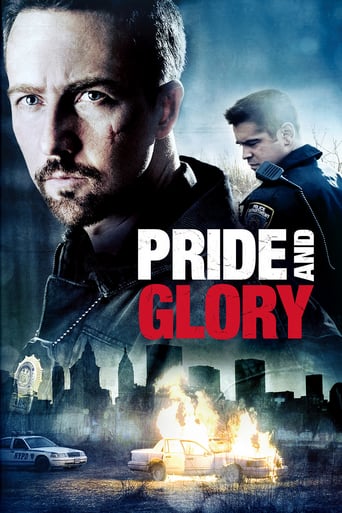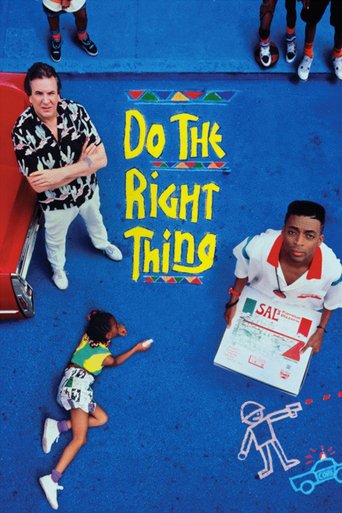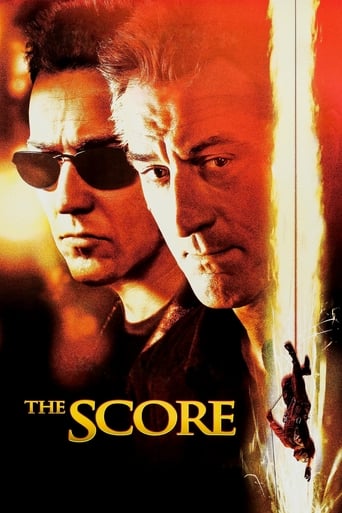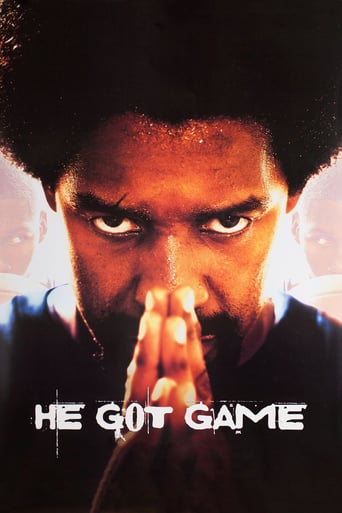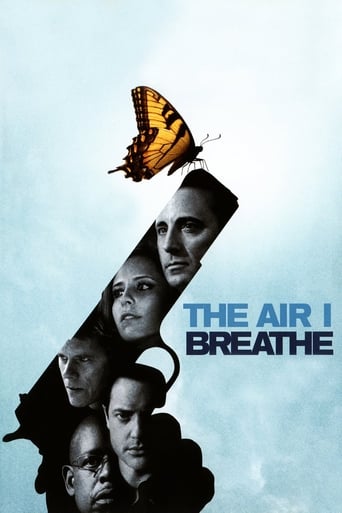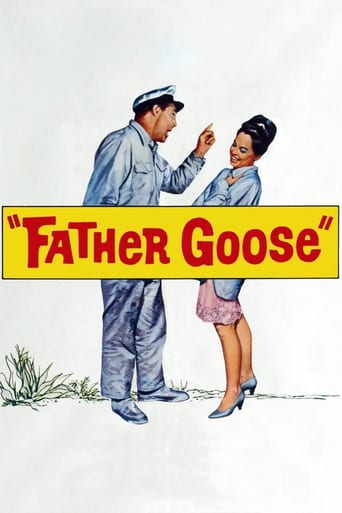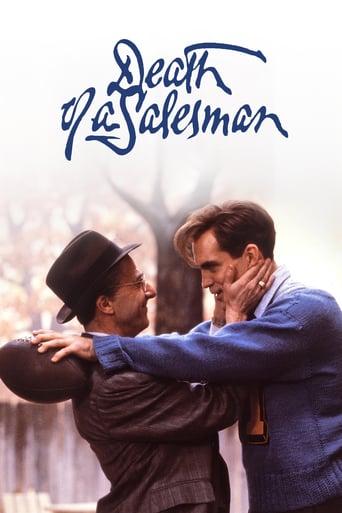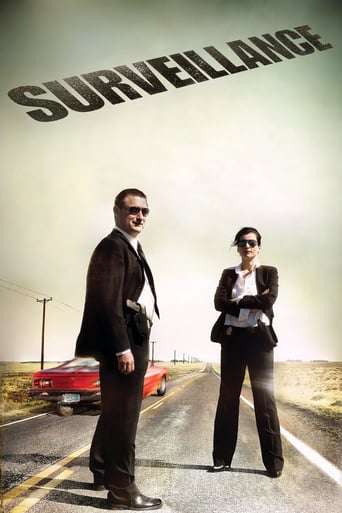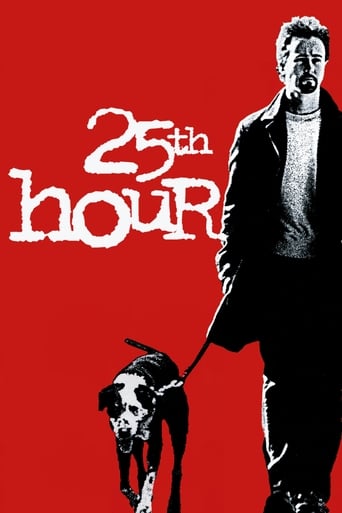


25th Hour
In New York City in the days following the events of 9/11, Monty Brogan is a convicted drug dealer about to start a seven-year prison sentence, and his final hours of freedom are devoted to hanging out with his closest buddies and trying to prepare his girlfriend for his extended absence.
-
- Cast:
- Edward Norton , Philip Seymour Hoffman , Barry Pepper , Rosario Dawson , Anna Paquin , Brian Cox , Isiah Whitlock Jr.


Similar titles
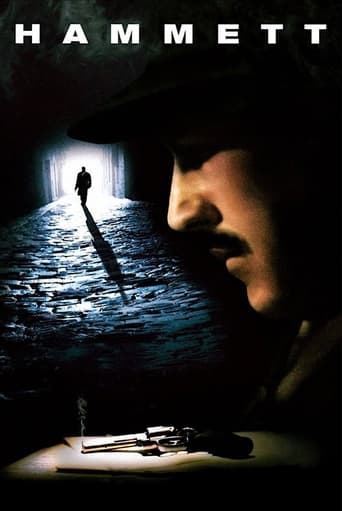
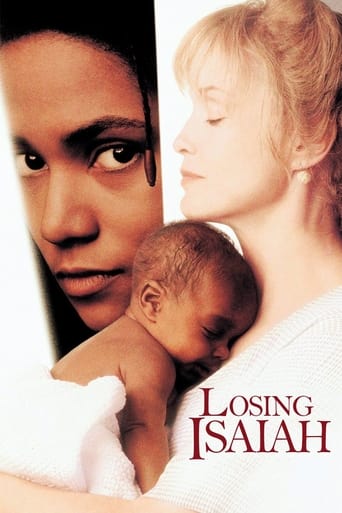
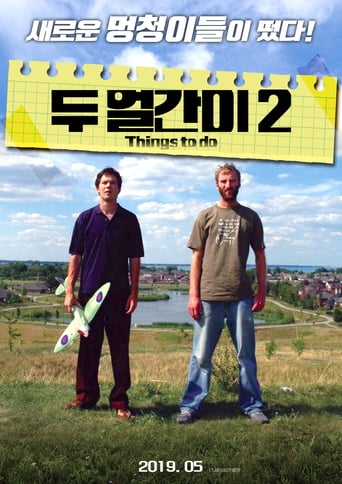
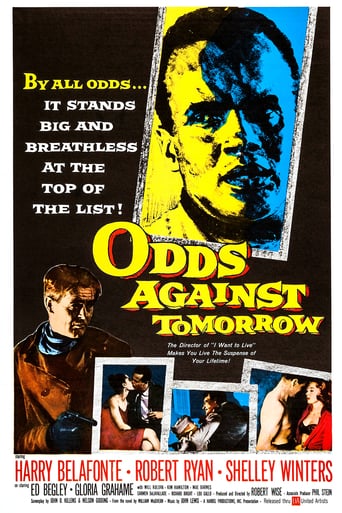
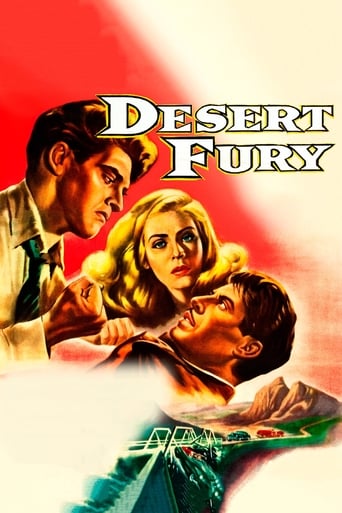
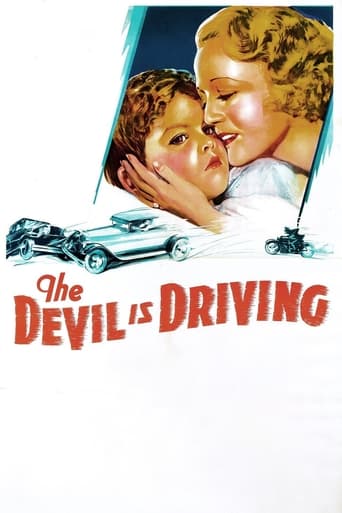


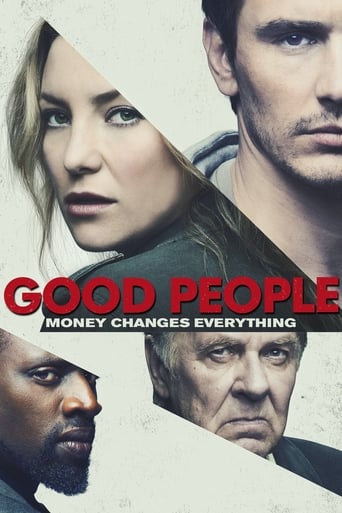
Reviews
To me, this movie is perfection.
I wanted to like it more than I actually did... But much of the humor totally escaped me and I walked out only mildly impressed.
Let me be very fair here, this is not the best movie in my opinion. But, this movie is fun, it has purpose and is very enjoyable to watch.
This is one of the best movies I’ve seen in a very long time. You have to go and see this on the big screen.
Seriously. This whole movie did not make any sense to me at all. If he was convicted and sentenced to prison for seven years, then they would have immediately taken him into custody so he would NEVER have the chance to potentially run away (as his dad even suggests to him late in the movie). I do not get this AT ALL!
I really love Spike Lee's film. This is a very underrated movie filled with great performances from Edward Norton, Philip Seymour Hoffman, Barry Pepper, Rosario Dawson, and Brian Cox. The story is compelling and Spike Lee does an awesome job of directing us to understand and sympathize for a man who chose the wrong path and now has to suffer the consequences for it. Every acted scene is beautiful but the most compelling scenes are one is in the bathroom. Edward Norton explodes internally with a monologue that reminded me of Robert De Niro in Taxi Driver. Another one is a long montage of Edward Norton and Brian Cox on a drive out into the wilderness. Both of these scenes are beautifully acted and are both very powerfully directed in my mind.
Monty Brogan deals drugs, gets ratted on, and nets a seven year prison sentence. It would seen that some people feel that by tweaking a few of the initial conditions in stories in this genre an original and creative movie will pop out. Not so, at least in this case, with the tweak being that we follow Monty in the 24 hours prior to his reporting to prison.As Monty, Edward Norton turns in a performance that is what you would expect from him in this role. The talents of Philip Seymour Hoffman are wasted as Monty's nerdy English teacher friend. The only actor whose performance goes beyond the adequate is Brian Cox as Monty's father.There are one or two interesting scenes, but that is not enough to carry the movie. The scene where Monty is talking to himself in the mirror where he vents his spleen against every sexual, racial, and class stereotype, winding up with himself, is interesting and the fantasy that his dad spins about an escape at the end is well done. I did like that the assurance "we will be there for you when you get out," offered by Monty's friends was offset by the recognition by all concerned that Monty would not be the same person when he got out that he was before going in.A lot of efforts were made to add some gravitas to the happenings, but they seemed forced to me. The cleanup of the Twin Towers site is used as the backdrop for some scenes, with bulldozers plying the ground and the vertical blue searchlights piercing the night sky. Such scenes provoke strong emotions for most Americans, particularly for those who lived through that time. But what was the purpose for having those scenes in this movie besides exploitation? Evoking such tragedy in a story that is no tragedy seems cheap. Scenes filmed using unusual color palettes, odd camera angles, or double takes were more distracting than illuminating. The thing that I found most irritating was the score--most of the time it worked at cross purposes to the mood, calling attention to it rather than the action on screen. The score tries to produce a heavy mood that simply is not there in the story.Many scenes, like the ones in the nightclub, go on too long--those scenes accumulate to the entire movie's going on too long.
Think of the innumerable bad guys that James Bond has ruthlessly dispatched over the years. Not the megalomaniacal villains of infinite ego, just the faceless and nameless body-bags that are just mild plot inconvenience. These people are such an unquestionable part of the world and they're a cog in the machine that keeps the plot moving, but we don't really think about this because these films don't invite us to think deeply about them, about how they became involved in these ridiculous plots, about whether they have a family or if they're struggling with the guilt of what they've left behind to pursue this life. Clerks thought about this over two decades ago, in relation to Star Wars. 25th Hour gives its narrative to one of these people; Monty Brogan is one of these elementary parts that helps sustain an entire operation, something that is taken for granted. He's a drug dealer, and of course there's nothing noble or commendable about that, but rather than being solely defined by that title, he's just another guy. So Monty Brogan is going to prison. Although this is an unalterable conclusion, he still exists in a kind of transitory state, 24 hours of purgatory, between the closing of his old life and the beginning of a new one, in which judgements can still be cast and relationships re- defined. Edward Norton always verges between 'everyman' and slick self-possessed star, and here he does kind of exist between those two states. As he goes about these final hours trying to ensure some sort of stability, we see both a man who's got that typical wit and verbosity of a protagonist who can always summon the correct words, a man seems to balance the immorality of the job from which he thrives with small moments of compassion, like his saving a dog in the opening scene or giving bills of cash to a sleeping tramp, but also the selfish dick who hasn't quite balanced the good deeds with the bad. There's sometimes a little of his character from Fight Club, except here it's not his masculinity that's in question, his impotence arises from the realisation that he might have wasted his life.And that feeling of uncertainty and things being questioned exists throughout, both in camera and subject. The cinematography is often kind restless, jumping from this position to the next, giving energy to environment that doesn't seem to have any. When Philip Seymour Hoffman is in English class with his students, there's a feeling of listlessness offset by this cinematography, and then later when scantily-clad student Anna Paquin challenges him about her B grade, in her disarming approach of both flirtation and contempt, the erratic camera almost turns this into some sort of intoxicated sit-com. There's also this occasional editorial choice that happened twice early on in the film in close succession and then (as far as I could tell) not again until the end, in which a certain action is shown twice, from a different angle. This happens as Norton and Hoffman move to embrace each other, and it's almost as if the film is stuttering and re-adjusting itself. In these weird moments the temporality of events is being affected, because I thought maybe these were supposed to be small but defining moments in his life, but maybe the reason is indiscernible.But what's clear is the film's immediate reaction to 9/11. The book was written before this happened, but just the very nature of it being incorporated into the film surprised me, not because it's a deliberately provocative move but because in the wake of such unfathomable tragedy people would choose to interpret it that way. But this isn't some fantasy land in which all real-world contexts can be ignored. They were edited out of Spider Man, but to do that here would be ignoring something very important about New York, and by extension America, and that's really what this film is. There's a moment in which Barry Pepper and Philip Seymour Hoffman are standing before Pepper's apartment windows, with a full view of the devastation of ground zero. The camera never moves throughout the entire discussion, in stark contrast to what I previously described, and so what you get is an evocative mixture of character and real world consequence. Monty Brogan isn't even present, the topic of discussion, and the script changes perspectives really subtly throughout the entire film, because it's aware that we can learn about our protagonist effectively through other people, and vice versa, but also that the characters can represent something larger than themselves. Barry Pepper is the slick semi-yuppie, voice of masculinity, Philip Seymour Hoffman, ever reliable, ever wonderfully uncool, is emasculated and anxious and never quite comfortable anywhere, his character described as someone who ran away from his privilege and Edward Norton lies somewhere in between, a man with money and composure but lots of things tearing at him underneath. During his now famous vitriolic monologue in a bathroom mirror, he sees the words 'fuck you' written on its corner and in retaliation releases and explosive condemnation on every culture and ethnicity present in New York, all reservation Norton had kept at this point gone as the melody of his words almost become a poetic performance piece, something which is echoed in the final monologue delivered by the father, Brian Cox. But here, as we cutaway to portraits of the people being described in borderline-racist terms, we're not seeing a character display a sweeping racism or misanthropy for everyone, but a man deflecting his own insecurities and defeats onto every other person available. It's America as both the large multi-cultural nation still thriving in its diversity, and America as a single man who is trying not to lose everything because he might have fuckedup the idea of the American Dream.

